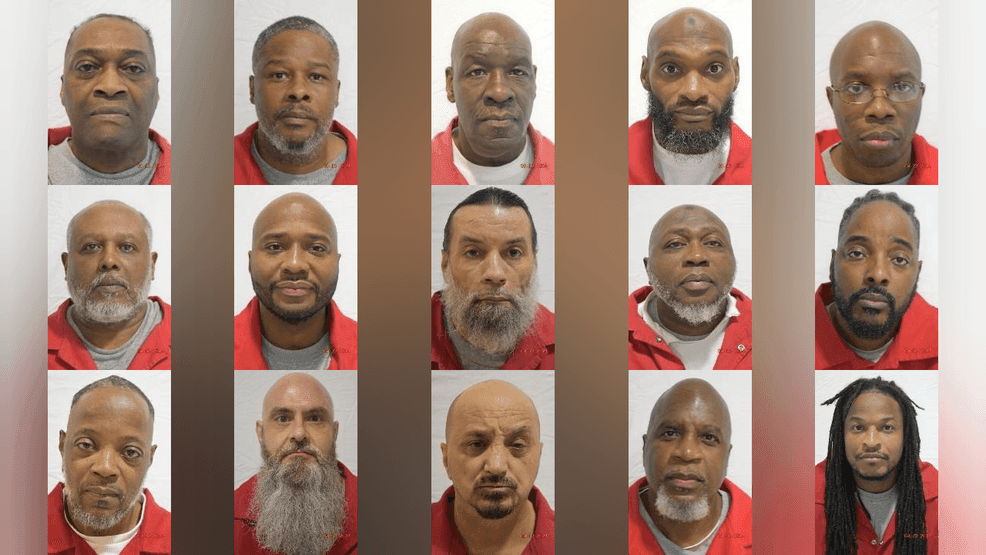Washington — President Biden announced Friday that he was commuting the sentences of almost 2,500 people convicted of nonviolent drug offenses, using his final days in office on a flurry of clemency actions meant to nullify prison terms he deemed too harsh.
The recent round of clemency gives Mr. Biden the presidential record for most individual pardons and commutations issued. The Democrat said he’s seeking to undo “disproportionately long sentences compared to the sentences they would receive today under current law, policy, and practice.”
“Today’s clemency action provides relief for individuals who received lengthy sentences based on discredited distinctions between crack and powder cocaine, as well as outdated sentencing enhancements for drug crimes,” Mr. Biden said in a statement. “This action is an important step toward righting historic wrongs, correcting sentencing disparities, and providing deserving individuals the opportunity to return to their families and communities after spending far too much time behind bars.”
The White House didn’t immediately release the names of those receiving commutations.
Still, Mr. Biden said more could yet be coming, promising to use the time before President-elect Donald Trump is inaugurated Monday to “continue to review additional commutations and pardons.”
Friday’s action follows Mr. Biden’s commutations last month of the sentences of roughly 1,500 people who were released from prison and placed on home confinement during the coronavirus pandemic, as well as the pardoning of 39 Americans convicted of nonviolent crimes. That was the largest single-day act of clemency in modern history.
All of this comes as Mr. Biden continues to weigh whether to issue sweeping pardons for officials and allies who the White House fears could be unjustly targeted by Trump’s administration. Though presidential pardoning powers are absolute, such a preemptive move would be a novel and risky use of the president’s extraordinary constitutional power.
Last month, he also commuted the sentences of 37 of the 40 people on federal death row, converting their punishments to life imprisonment just weeks before Trump, an outspoken proponent of expanding capital punishment, takes office. Trump has vowed to roll back that order after his term begins.
Mr. Biden also recently pardoned his son Hunter, not just for his convictions on federal gun and tax violations but for any potential federal offense committed over an 11-year period, as the president feared Trump allies would seek to prosecute his son for other offenses.
If history is any guide, meanwhile, Mr. Biden also is likely to issue more targeted pardons to help allies before leaving the White House, as presidents typically do in some of their final actions.
Just before midnight on the final night of his first term, Trump, a Republican, signed a flurry of pardons and commutations for more than 140 people, including his former chief strategist, Steve Bannon, rappers Lil Wayne and Kodak Black and former members of Congress.
Trump’s final act as president in his first term was to announce a pardon for Al Pirro, ex-husband of Fox News Channel host Jeanine Pirro, one of his staunchest defenders. Al Pirro was convicted of conspiracy and tax evasion charges and sentenced to more than two years in prison in 2000.
In a historic move, President Biden has set a new record for presidential pardons and commutations by commuting almost 2,500 additional sentences. This marks a significant step towards criminal justice reform and providing second chances to those who have paid their debt to society.
Biden’s commitment to addressing the inequities in the criminal justice system is evident in his actions, as he continues to prioritize clemency for individuals who have been disproportionately affected by harsh sentencing laws. By granting these commutations, President Biden is giving hope to thousands of individuals who have been incarcerated for nonviolent offenses and are deserving of a second chance.
This latest round of commutations underscores the administration’s dedication to promoting fairness and equity in the criminal justice system. As President Biden continues to use his executive powers to grant clemency, he is sending a powerful message about the importance of rehabilitation and redemption.
The impact of these commutations will be felt far and wide, as individuals are given the opportunity to rebuild their lives and contribute positively to their communities. President Biden’s record-setting actions on pardons and commutations are a testament to his commitment to creating a more just and compassionate society.
Tags:
- Biden presidential pardons
- Biden commutations record
- Biden commutes sentences
- Biden sets record for commutations
- Biden pardons and commutations
- Biden criminal justice reform
- President Biden pardons and commutations
- Biden administration sentencing reforms
- Biden grants clemency
- Biden commutes nearly 2,500 sentences
#Biden #sets #presidential #pardons #commutations #record #commutes #sentences







